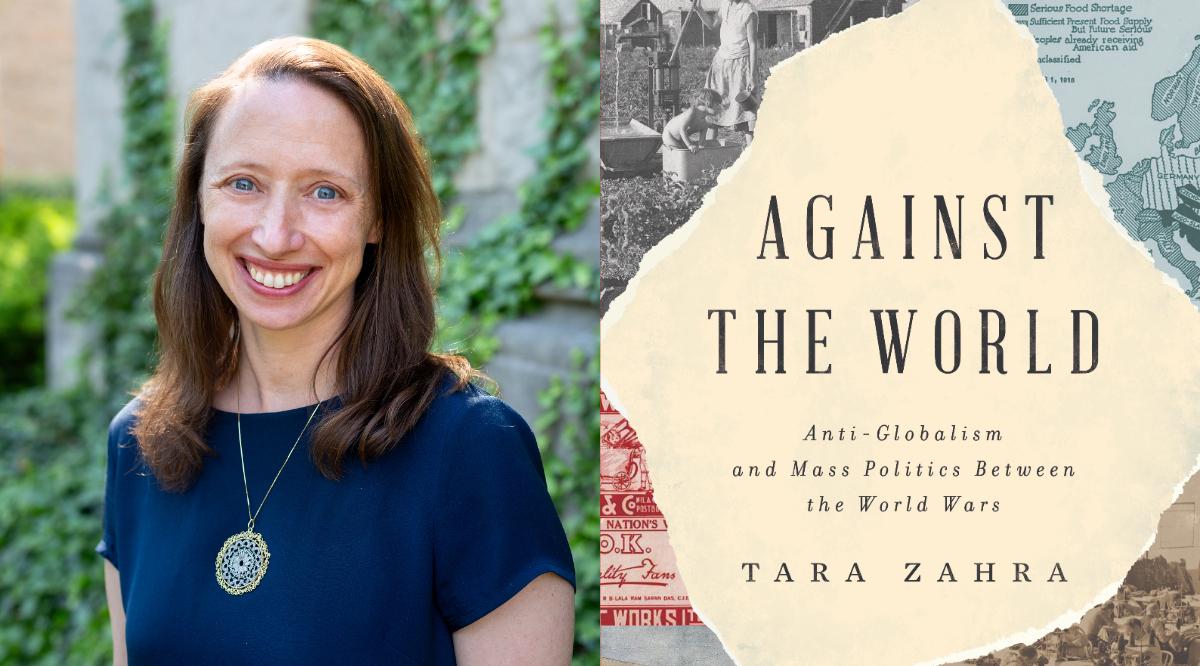
In Brief
- Zahra studies interplay of universalism and nationalism, primarily in 20th century Europe.
- She helped develop the Human Rights in World Civilization Core sequence, and regularly teaches its courses.
- She wants history to illuminate the challenges of the present, including those faced by human rights practitioners.
How did our contemporary ideas about human rights form? How were human rights concepts experienced by the people they were meant to protect? And how did the vision of an international rights regime spark backlash, helping to create currents of nationalism that continue to define global politics today?
Over the last 15 years, the historian Tara Zahra – a longtime member of the Pozen Faculty Board – has tackled these questions (among others) in increasingly ambitious research projects that link human rights history to pressing contemporary issues. For these efforts, Zahra has been recognized with a MacArthur Fellowship, and since 2022 she has also been the Roman Family Director of UChicago’s Neubauer Collegium.
If there’s a through-line in Zahra’s work, it is the idea that moments of historical rupture can give rise to quite different, even diametrically opposed, ideological developments. She began her career researching European attitudes toward children, family, and nationhood – and how these attitudes shifted over time Her second book, The Lost Children, focused on children separated from their parents by the displacements of World War II, tracking how their lives became a topic of special interest in the post-war era. Emerging international human rights institutions sought to establish the separation of families as a violation of a universal human right that transcended borders. At the same time, displaced children also became potent symbols of national identity, leveraged to make countries’ borders more meaningful than ever.
“Writing The Lost Children was a way for me to think about the history of human rights not only from the perspective of practitioners – experts and social workers and diplomats – but also the children and their families themselves, who became pawns in some of these discussions,” Zahra says.
Her third book, The Great Departure, was similarly attuned to the way that ideas about universal rights could develop alongside ideas about national and ethnic superiority. Zahra explored the migration of 50 million Europeans to America between 1846 and 1940, tracing how this mass movement of people later became a reference point for the idea of a basic human right to emigrate – but also for the Holocaust, the closing of the Iron Curtain, and vicious campaigns of ethnic cleansing.
Zahra began the research for her latest book, Against The World: Anti-Globalism and Mass Politics Between the World Wars, in 2017 while teaching in the Pozen Center’s spring quarter abroad, then based in Vienna. (The program has since moved to Paris.) After a long period of widespread enthusiasm for globalization, nationalism was surging across the world – evidenced by the election of Donald Trump, the Brexit referendum, and the rise of anti-migrant populism across the West. Zahra decided to take a closer look at the years between the two world wars: another period when zeal for a borderless world – defined by migration, trade, and universal rights – collided with reactionary enthusiasm for nations, borders, and exclusion.
Where Zahra’s previous books had used specific phenomena – migration, child separation – as windows into competing currents of globalism and nationalism, now she made those currents her central subject, gathering supporting examples from all over the world, culled from archival research in five languages. Thanks to its contemporary relevance – and stylish narrative quality – the book enjoyed a much wider reception than a typical academic investigation, even ending up as an “Editors’ Choice” in the New York Times Book Review.
“The story of the book has everything to do with human rights,” says Zahra. “Because the international organizations that represent and try to advance human rights are always some of the first to get targeted in an anti-global environment.”
Alongside her research, Zahra has contributed substantially to the Pozen Center’s mission to be a UChicago hub for the theory and practice of human rights. In addition to organizing multiple Pozen-sponsored conferences on human rights themes (including migration and human trafficking), she helped to create the College’s Human Rights in World Civilizations Core sequence, and still regularly teaches its courses.
“Developing the Core sequence was a formative and exciting experience for me because it put me in conversation with colleagues across the university who are interested in human rights but from very different perspectives,” says Zahra. “Philosophers, literary scholars, legal scholars, anthropologists, sociologists. Getting to sit and talk with them about what we were reading and how we might talk about it with students – it really deepened my own understanding of the human rights tradition.”
“And actually teaching these courses put me in touch with a group of undergraduates that I wouldn’t have necessarily gotten to know otherwise. The human rights sequence attracts a really diverse group of undergraduates. I was surprised, at first, to realize I had all of these students from the sciences. They had a real passion for thinking about how their intellectual work can translate into making the world a better place.”
“Pozen has always felt like a place where I can talk to people who are thinking not just about their discipline but also its relation to the world we live in. Not all academics are always thinking that way, and it’s good to have a place that brings us together.”


